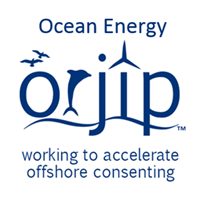-
During 2013, there was an increasing recognition amongst many in the ocean energy industry (developers, regulators, their advisors and the research community) that a coordinated, strategic approach would help de-risk and accelerate the consenting of wave and tidal projects in the UK. This is particularly the case for projects yet to be consented, and those recently consented projects with consent conditions requiring technically challenging, costly and pioneering environmental monitoring programmes.
-
Given this recognition, throughout 2013 and early 2014 The Crown Estate and the Natural Environment Research Council (NERC) organised a series of discussions with the UK’s devolved administrations, key decision makers and regulators, advisors, demonstration/commercial array-scale developers and others. There was consensus that a coordinated research programme would be a welcome development and was something worthy of continued consideration.
-
The decision was made to set up a UK-wide research programme focussed on the environmental impacts of wave and tidal energy projects. The emergence and fast progress of the tidal range industry was acknowledged and hence the decision was made to also include tidal range in ORJIP Ocean Energy
-
To kick-start development of a potential coordinated programme for the wave and tidal sectors, The Crown Estate commissioned Aquatera Ltd to undertake a desk-based study. The study sought to consolidate the key EIA/HRA issues facing the sectors and identify the current knowledge gaps and priority research areas. In addition to Aquatera involving a large number of organisations in the project’s Call for Evidence, the draft report was discussed by some 50 stakeholders at a workshop organised by NERC (Edinburgh, Nov 2013).
-
The workshop discussions confirmed the work was comprehensive and assisted Aquatera with finalising the report. Along with a summary of the workshop by NERC, the Aquatera report was published by The Crown Estate in January 2014. To access the final report, see https://nerc.ukri.org/innovation/activities/energy/offshore/nerc-crown-estate-workshop.
-
Since the Aquatera report was published in January 2014, The Crown Estate, NERC, Marine Scotland and others have continued to progress the programme. A further meeting was held in July 2014 with the regulators, Government, devolved bodies, some first array developers and others to discuss the programme structure/management, membership and funding. There was overall support and commitment shown for the proposed structure and for the programme in general, and all wished to see it progress.
-
To this end, The Crown Estate, Marine Scotland and Welsh Government (the Sponsors) committed to fund a Secretariat function to run the programme, now known as ORJIP Ocean Energy. Via the Secretariat function, ORJIP Ocean Energy brings regulators, stakeholders, industry, funders and researchers together so that the sectors’ consenting risks can be addressed in a timely manner and on a strategic basis. The Secretariat role was funded for an initial 15-month pilot phase, running to June 2016. The Secretariat function is run by Aquatera and delivery partners MarineSpace and the European Marine Energy Centre (EMEC).
-
The purpose of the pilot stage was to establish ORJIP Ocean Energy, progress research and monitoring projects in order to de-risk consenting of wave, tidal current and tidal range developments, gain experience of running the programme, and then to evaluate its progress and benefits. The developers, devolved administrations, regulators, Statutory Nature Conservation Bodies (SNCBs), etc. convened at end of the pilot phase to determine if there was merit in continuing the programme further and what format any continued programme should take based on the status of the industry at that time and who would be the most appropriate to fund any future programme. Having been deemed a success the decision was made to extend the programme by a further 12 months. NRW and SNH have joined TCE, Marine Scotland and Welsh Government as programme sponsors.
-
Via the Secretariat, ORJIP Ocean Energy has produced a prioritised list of major research issues. This list is presented in the Forward Look; a published report which sets out the purpose, required timing and broad scope of the research projects necessary to meet ORJIP Ocean Energy’s overall aim. The Forward Look has been produced by the Secretariat and is informed by consultation with key stakeholders including the Steering Group and the Network. The Forward Look can be found here.

Offshore Renewables Joint Industry Programme (ORJIP) Ocean Energy
ORJIP Ocean Energy is a UK-wide collaborative programme of environmental research with the aim of reducing consenting risks for wave, tidal stream and tidal range projects.